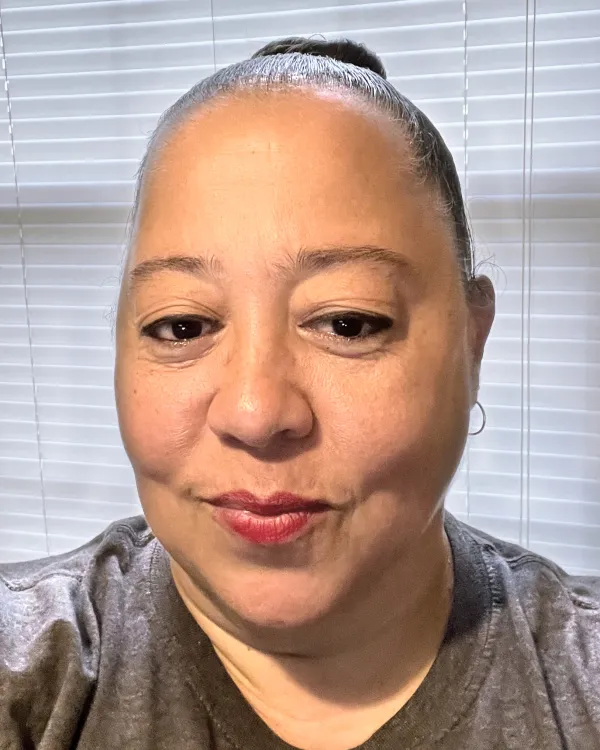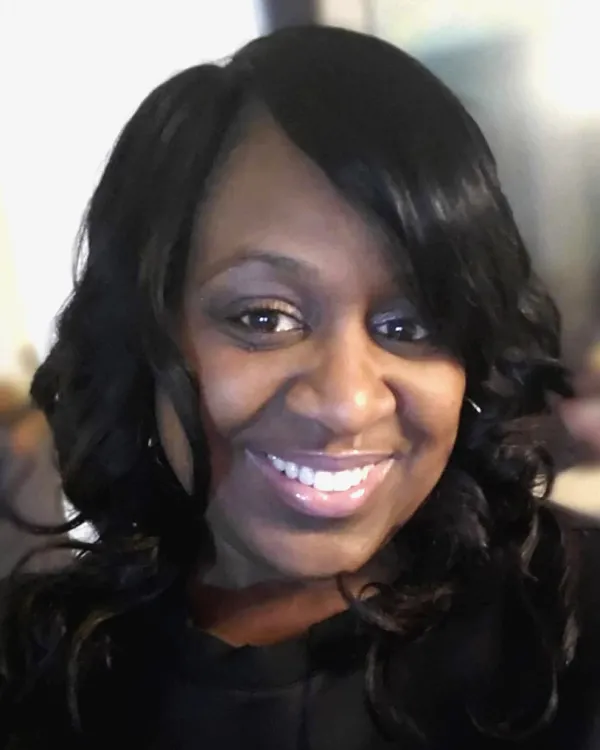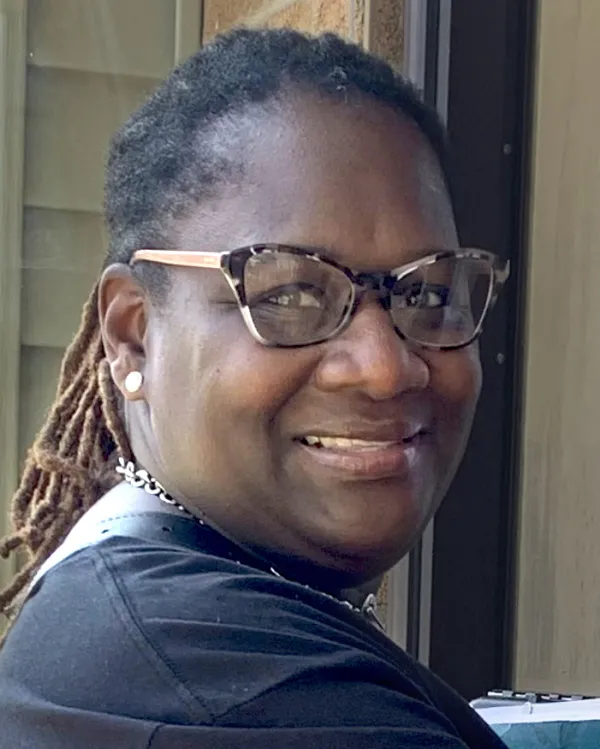AFSCME members keep children safe through pandemic
Three DCFS investigators share their stories

Apple Glover
Local 805, Springfield

“I love what I do,” Glover said. “I’m not going to say that it’s easy. There are days that I’m running on low vapors. And there are days when you’ve seen something or heard something terrible, or you have that one case that lingers in the back of your mind. You get in your car and you’re driving and all of a sudden the tears are rolling down your face. But that doesn’t deter me. I love being able to help ensure that children are safe.”
Glover said that while the pandemic obviously posed big challenges and risks to workers’ health, not a lot changed with the job. The reports of abuse and neglect never stopped, so neither did DCFS employees.
Glover said she and her co-workers depend on one another for support. “You have to have a passion for what you do in our line of work, and we definitely do. I’m blessed to be part of this team.”
Tiara Long
Local 2081, Chicago

“We respond to hotline calls that come in with an allegation of substantial risk to children by abuse or by neglect, including inadequate shelter, inadequate supervision, sexual abuse, violence or neglect,” Long said. “We gather more information, then go knock on the door. We introduce ourselves, ask to see the children and speak with them about what was reported. Sometimes we’re knocking on the doors not knowing what’s on the other side, hoping that the family will be receptive.”
The job is protecting children but it’s also about helping the families. “A lot of the families face many barriers and lack the services—especially mental health services—they need to do a better job of protecting their children so they can stay together.”
Long said that COVID hit her department hard. “COVID did not stop abuse, it did not stop the hotline calls. Some of us were placed in the position of going into homes and hospitals even if the children were exposed to COVID. A lot of my colleagues caught COVID. We knew we might bring this back to our own homes, our elderly parents, our children, but we were still doing the work.”
She and her co-workers refused to give up, no matter the challenges, and they had the bonds of solidarity to make it through. “In a very difficult situation, something we’d never seen before, my colleagues and I got the job done and done well. We relied on each other and our union. AFSCME fought so hard for us. When CMS stated Child Protection would be excluded from the federal CARES Act, AFSCME fought hard and got us what was fair and right. I’m very grateful.”
Kertrina Dickerson
Local 51, Peoria

After the first couple months when COVID hit, hotline calls spiked. The pressures of the pandemic could be seen in the nature and volume of need. “We got so busy. There was an escalation of domestic violence with more calls coming from the police and hospitals. Mothers who normally can get that break when they send their kids to school, had a lot more demands on them. Our job expectations didn’t change but the barriers got bigger.”
COVID made the job harder in other ways, too, like having to wear a mask. “You need to use all five of your senses as an investigator,” Dickerson said. “With the mask you lose your sense of smell. You can’t see facial expressions. Or it’s harder to tell if someone has been drinking.”
Dickerson spent 23 years working for a private agency before she came to DCFS. Today she’s happy to work for the state as an AFSCME member, with rights on the job and a secure retirement—still doing the work she loves.
“Child protection is my calling,” Dickerson said. “It’s the hardest job I’ve ever done in my life, but I absolutely love it. A lot of times parents don’t know what they don’t know, so they repeat cycles of how things were done when they were young. I like helping them understand that there’s a better way.”
